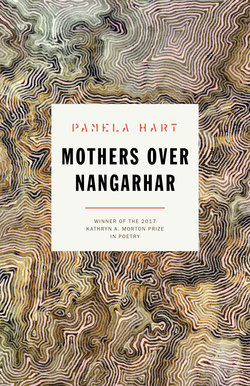Читать книгу Mothers Over Nangarhar - Pamela Hart - Страница 9
На сайте Литреса книга снята с продажи.
ОглавлениеINTRODUCTION
A poem, by its very nature, is an ancillary and obsessive thing. Were the state a ship, as Horace put it to us in his odes, then a poem, political or not, would be the wake of that ship, impossible without it, doggedly pursuing it—a thing apart and yet integral. To live a life without poetry is to look out from the ship on which we cross the short sea of our existence and see the water unmoved, untroubled, untouched, and to think nothing of it, the sea slick and without sound. No one would ever confuse a ship with the parting water that pursues it, and yet a ship without its wake, like a wake without its ship, would be a ghost ship, a sign of death-in-life, a form of terror.
Mothers Over Nangarhar speaks back to the world while being deeply aware of its own nature in this wakeful way, aware of the strange and haunting paradox of having given life to the world that encircles it and having also been brought to life by that same world, the paradox of being in the middle of a war without being on the ground, the imagination brimming in the wake of the ship of state. The book circles its subject with the poignant uncertainty of whether it is merely observing or being dragged down into the depths. These are poems that move like liquid, pursuing what has been lost in those distanced decisions as life turned a corner and bent out of sight, that move with a foreboding sense of an approaching but unconfirmed shipwreck, having passed cindered flotsam in the sand.
The deft use of craft in Mothers Over Nangarhar, with its admirable range of influence, allusion, and form, doesn’t paper over the collection’s sense of its own ancillary and obsessive nature. At its heart this book is a story of the mother’s mind making sense of a child tossed overboard and into the jaws of war. How does the mind make sense of this—the nightmare of your child being chewed and spat out by Scylla and Charybdis and then sent back to you? How does the body make sense of this—by seeking communion with nature and art and others, or through the search for virtual knowledge?
Somewhere between theory and therapy but free of the constraints of both, Mothers Over Nangarhar moves through its mazy, crazed world of intimate and global conflict, exterior and interior pain, searching and assured. It is a beautiful, strong, and vulnerable work for our beautiful, strong, and increasingly vulnerable world.
—Rowan Ricardo Phillips
June 2017
